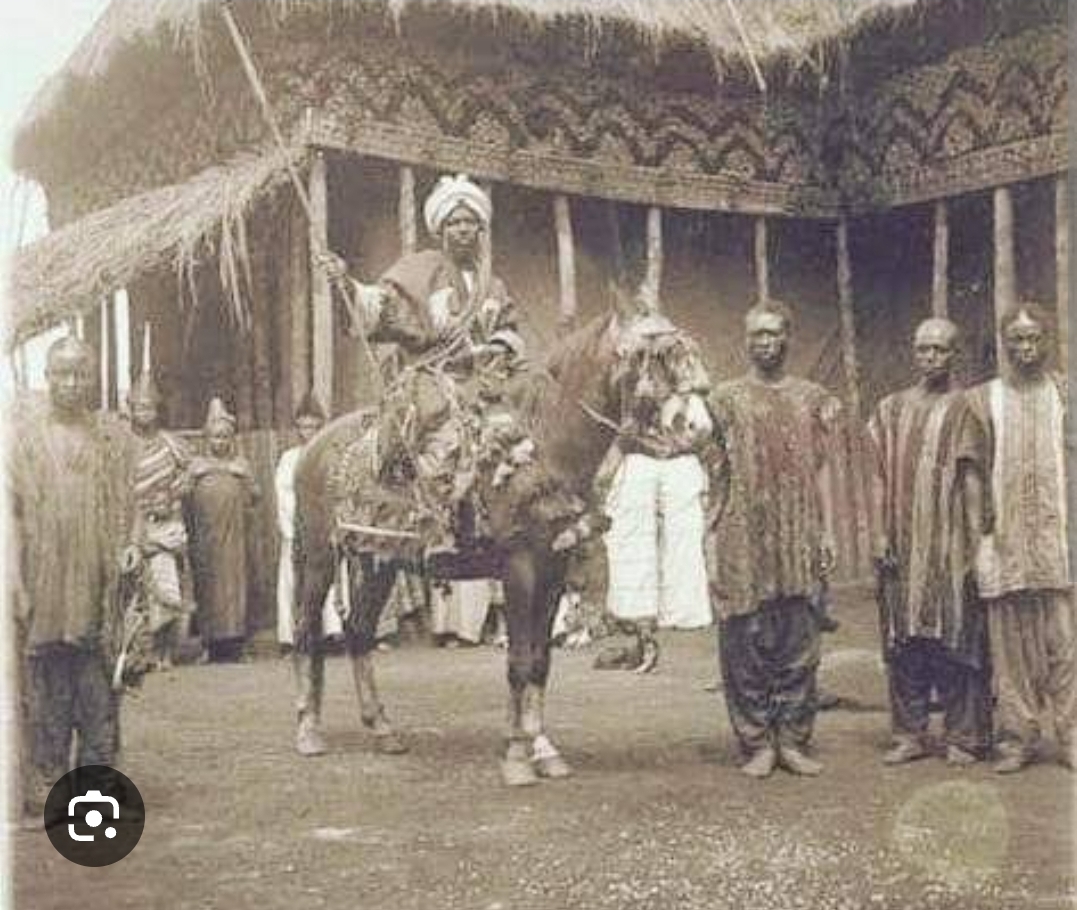Biography
The Oyo Mesi and the Historical Controversy Surrounding Governor Seyi Makinde’s Decision on the Alaafin of Oyo’s Selection
The Oyo Mesi: Custodians of Oyo State’s Tradition
The Oyo Empire, historically one of the most powerful Yoruba kingdoms, is steeped in tradition and culture. At the heart of its governance is the Alaafin of Oyo, the paramount ruler and spiritual leader of the Yoruba people. This institution is supported by the Oyo Mesi, a council of seven kingmakers who wield significant authority in the selection of a new Alaafin.
However, a significant break from tradition occurred recently when Governor Seyi Makinde of Oyo State overruled the decision of the Oyo Mesi, marking a historic first in the kingdom’s long and storied history. This controversial decision has sparked heated debates, both within the state and across Nigeria, as it challenges the delicate balance between tradition and modern governance.
The Role of the Oyo Mesi
The Oyo Mesi, established during the zenith of the Oyo Empire, was designed to serve as a check on the powers of the Alaafin. Led by the Bashorun, the council’s head, the Oyo Mesi comprises six other prominent chiefs: the Agbaakin, Otun, Osi, Ashipa, Alapinni, and Akinniku. Together, they represent various aspects of governance, including military, judicial, and administrative functions.
Responsibilities of the Oyo Mesi
The Oyo Mesi’s primary responsibility is the selection of the Alaafin. This process involves:
- Consulting the Oracle: Ifa divination plays a critical role in determining the most suitable candidate among the eligible royal lineages.
- Assessing Candidates: The council evaluates candidates based on character, leadership qualities, and their ability to uphold Yoruba traditions.
- Ensuring Stability: The Oyo Mesi’s decision is aimed at ensuring harmony and continuity within the kingdom.
The Selection of the Alaafin
Traditionally, the Oyo Mesi’s decision on the new Alaafin is final. Once the council makes its selection, the state government is expected to ratify it as a formality. This process has ensured the preservation of Yoruba customs and avoided undue political interference in cultural matters.
However, the recent selection process following the demise of Alaafin Oba Lamidi Adeyemi III has disrupted this time-honored tradition. After months of deliberation, the Oyo Mesi reportedly selected Prince Lukman Gbadegesin as the next Alaafin. This decision was met with widespread anticipation, as many believed the process adhered to traditional practices.
Governor Seyi Makinde’s Intervention
In an unprecedented move, Governor Seyi Makinde rejected the Oyo Mesi’s choice and instead selected Prince Akeem Adeyemi (Skimeh) as the new Alaafin. This decision marked a significant departure from tradition, as it was the first time in Oyo’s history that a state governor had overruled the Oyo Mesi’s choice.
Why Did Governor Makinde Overrule the Oyo Mesi?
- Allegations of Bias: Reports emerged that the selection process led by the Oyo Mesi was allegedly influenced by favoritism, raising questions about its fairness.
- Political Considerations: As a former member of the House of Representatives, Prince Akeem Adeyemi is well-versed in modern governance. Governor Makinde may have viewed him as a candidate who could bridge the gap between tradition and contemporary leadership.
- Ensuring Stability: The governor’s intervention was likely aimed at preventing potential conflicts that could arise from a disputed selection process.
Reactions to the Decision
The governor’s decision has elicited a wide range of reactions from different stakeholders:
- Traditional Institutions: Many traditionalists have condemned the move, viewing it as an encroachment on the authority of the Oyo Mesi. They argue that the decision undermines Yoruba customs and sets a dangerous precedent.
- Supporters of Prince Lukman Gbadegesin: Supporters of the Oyo Mesi’s choice have expressed disappointment, describing the governor’s intervention as unjust.
- Supporters of Prince Akeem Adeyemi: On the other hand, supporters of Prince Akeem Adeyemi have lauded Governor Makinde’s decision, emphasizing his leadership qualities and political experience.
- Legal and Political Analysts: Some analysts have highlighted the need for a clear delineation of powers between traditional institutions and the state government to prevent future conflicts.
Historical Significance of the Alaafin of Oyo
The Alaafin’s role extends beyond governance; he is a cultural custodian, spiritual leader, and a symbol of Yoruba identity. Past Alaafins, such as Oba Atiba Atobatele and Oba Lamidi Adeyemi III, have played pivotal roles in preserving Yoruba traditions and promoting the kingdom’s legacy.
Contributions of Alaafin Oba Lamidi Adeyemi III
During his 52-year reign, Oba Adeyemi:
- Strengthened the cultural heritage of the Oyo Kingdom.
- Advocated for Yoruba unity and promoted the language and traditions.
- Represented the Yoruba people at national and international forums.
Implications of the Governor’s Decision
Governor Makinde’s intervention has far-reaching implications for the relationship between traditional institutions and modern governance:
- Erosion of Traditional Authority: Critics fear that the decision undermines the sanctity of the Oyo Mesi and other traditional councils.
- Precedent for Future Interventions: This move sets a precedent that could lead to increased governmental interference in traditional matters.
- Integration of Tradition and Modernity: Supporters argue that the decision reflects the evolving nature of leadership, where traditional and modern governance must coexist.
A Brief Overview of Oyo State
Oyo State, situated in the southwestern region of Nigeria, is a treasure trove of rich cultural heritage and historical significance. As the cradle of Yoruba civilization, the state boasts an array of iconic landmarks that showcase its glorious past. Some of the most notable attractions include:
- The Old Oyo National Park, a sacred site that holds the remnants of the ancient Oyo Empire
- The Alaafin’s Palace, the official residence of the Alaafin of Oyo, the paramount ruler of the Yoruba people
- The Agbala of Ibadan, a historic site that commemorates the bravery of the Ibadan warriors.
- The Mapo Hall, a colonial-era building that serves as a museum and a testament to the state’s colonial history.
- The University of Ibadan, Nigeria’s premier university, which is located in the state and is renowned for its academic excellence.
Oyo State is also famous for its vibrant cultural festivals, including the Oyo Durbar Festival, which showcases the rich cultural heritage of the Yoruba people. The state’s capital, Ibadan, is a bustling city with a rich history, cultural landmarks, and a thriving economy.
With its unique blend of history, culture, and natural beauty, Oyo State is a must-visit destination for anyone interested in exploring the rich cultural heritage of Nigeria.

Cultural Significance
Oyo State is a hub of Yoruba culture, with festivals, traditional music, and art forms that attract visitors from across the globe. The Alaafin’s role as a cultural ambassador has further elevated the state’s reputation.
Conclusion
The controversy surrounding the selection of the Alaafin of Oyo highlights the tension between tradition and modernity in contemporary governance. While Governor Seyi Makinde’s decision to override the Oyo Mesi’s choice is unprecedented, it underscores the dynamic nature of leadership in a rapidly changing society.
As the new Alaafin ascends the throne, it is essential to foster harmony between traditional institutions and state governance to ensure the continued preservation of Yoruba culture and traditions.












